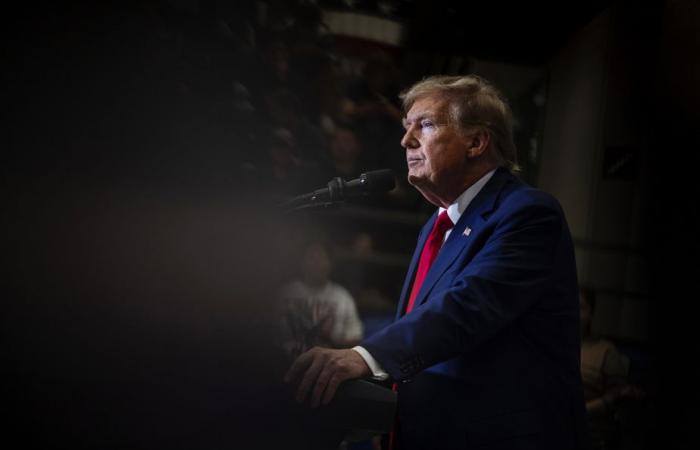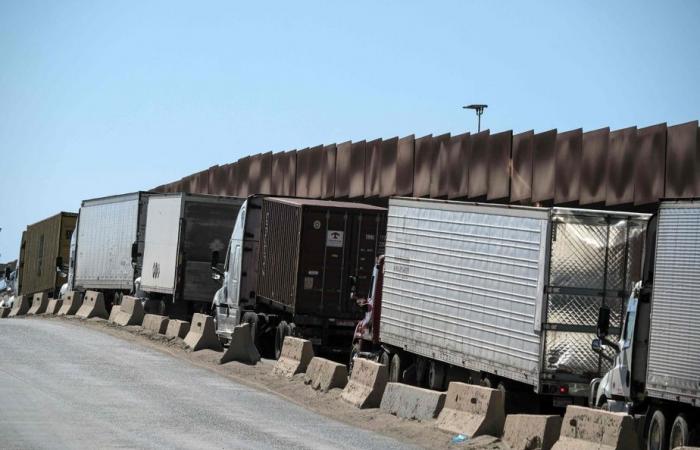Rather than uniting with Mexico to stand together against U.S. tariffs, Canada dropped its amigo even before the start of commercial hostilities. A bad strategy, according to experts.
Published at 5:00 a.m.
Canada and Mexico are in the crosshairs of the next Donald Trump government, which accuses the two countries of bringing drugs and illegal immigrants into its territory. Mexico is in a worse position, since the US administration suspects it of being the back door for electric vehicles and other Chinese products that enter the US market by avoiding tariffs.
Mexico has recently become the main supplier to the Americans, with a 15% share of total US imports, ahead of China. According to the American administration, this is proof that Chinese products are increasingly passing through Mexico to arrive in the United States.
Under the reign of Andrés Manuel López Obrador, Mexico raised discontent among its two friends of the Canada–United States–Mexico Agreement (CUSMA) with its protectionist energy policies aimed at retaining a greater share of the profits from its oil resources.
The Mexican government is continuing discussions with Chinese automakers, including the giant BYD, who want to invest in Mexico, which collides head-on with the decision of the United States and Canada to ban Chinese competition from their markets with 100% tariffs on electric vehicles from China. Mexico wants to attract foreign investment, which is legitimate, believes Patrick Leblond, specialist in international relations at the University of Ottawa.
Canada did not wait long to raise the possibility of excluding Mexico from CUSMA, which is due for review in 2026.
Ontario Premier Doug Ford launched the idea and added more on Tuesday after the announcement that tariffs of 25% would be imposed on Canadian and American products starting in January. He finds it “insulting” that Canada is compared to Mexico by its American friend. Neither Canadian Prime Minister Justin Trudeau nor his Finance Minister Chrystia Freeland have rejected the idea of Canada negotiating alone with the United States.
Nobody is coming to the aid of Mexico, notes Richard Ouellet, specialist in international trade law. “What this reveals is that Canada is very afraid of losing its access to the American market and that we are ready to make a lot of concessions,” says the man who is also a professor at Laval University.
Patrick Leblond also has difficulty understanding “why we are dumping the Mexicans” before the negotiations even begin.
“It’s as if we were already ready to kneel in front of the Americans to appease them,” he said.
There is a wave of panic blowing in Canada. We don’t think long term.
Bernard Colas, associate lawyer at Affilia, a firm specializing in international commercial law
The panic was there well before this week, he notes. He points to the Canadian government’s decision to imitate the Biden administration, which imposed punitive tariffs on electric vehicles, in defiance of all international trade rules.
“Normally, Canada should have followed the rules of the World Trade Organization, requested an investigation and imposed tariffs or not depending on the results of the investigation, as was done in Europe,” explains Bernard Colas.
For a country like Canada, which has always considered itself a champion of free trade, such a change of course will be a serious blow to its credibility on the international level, according to him. “In the long term, it will harm us,” believes the lawyer.
Without Mexico?
According to Richard Ouellet, a free trade agreement between Canada and the United States that would exclude Mexico is entirely possible. “This was the case before NAFTA with the Canada-United States Free Trade Agreement (CFTAF), which was in effect between 1989 and 1994,” he says.
When Mexico attempted a trade rapprochement with the United States, the Canadian government of Brian Mulroney provided the impetus to include Mexico, which led to NAFTA, he recalls.
The Mexican economy has benefited greatly from the liberalization of North American trade. Investments poured in and many companies moved there to take advantage of its abundant and cheaper labor force. All the major automobile manufacturers are based there, including the American GM and Ford.
PHOTO GUILLERMO ARIAS, AGENCE FRANCE-PRESSE
Trucks queue next to the U.S.-Mexico border to cross into the United States at the Otay crossing port in Tijuana, Baja California state, Mexico, August 22, 2024.
The Canadian economy also benefited from Mexico’s entry into the North American free trade agreement. Many Quebec companies have also focused on Mexico, the best known of which is the recreational vehicle manufacturer BRP. The Valcourt-based company did not want to comment on the possibility that Mexico would be excluded from the trade agreement. “We do not grant interviews on the subject,” said a company spokesperson.
“BRP is very pleased to be able to manufacture its products in Mexico and sell them in Canada, the United States and around the world at competitive prices,” emphasizes lawyer Bernard Colas. If I were BRP, I would be panicked, and if I was a BRP subcontractor, I would be panicked too. »
There are many companies in the same situation on the North American continent. So much so that Bernard Colas believes that the probability that Mexico will be excluded from a future agreement is low. “There are too many issues,” he believes.
In the meantime, the environment has become even more insecure this week for businesses in the three countries. “You have to be ready for anything,” summarizes Patrick Leblond about the commercial context of the coming years.
The three signatories of the agreement have a lot to lose in a trade war, believes Bernard Colas. He persists in believing that it is possible to avoid the worst. “The American chambers of commerce will eventually wake up and put pressure on the American government to save the agreement,” he says.
Exports from Canada (2023)
- In the United States: $594.5 billion or 77% of Canadian exports
- In Mexico: 8.9 billion or 1% of Canadian exports
Source: Statistics Canada
CUSMA: next steps
The United States is still a signatory to the Canada-United States-Mexico Free Trade Agreement, which entered into force in 2020 for a period of 16 years. A review is planned after six years, which must take place in 2026. The three countries must decide whether to extend the agreement for a further period of 16 years. Otherwise, the agreement provides that the agreement will be subject to review each year until it expires in 2036. CUSMA could also end abruptly with six months’ notice from one or any other of its signatories.







